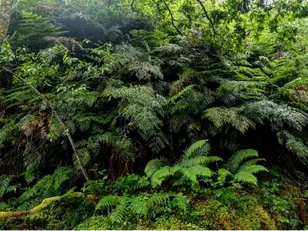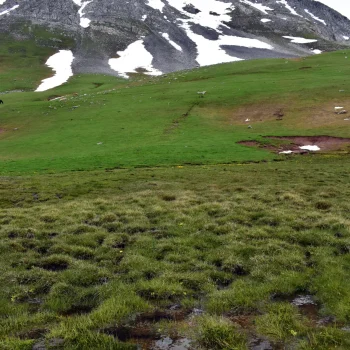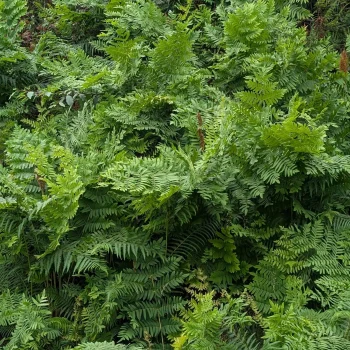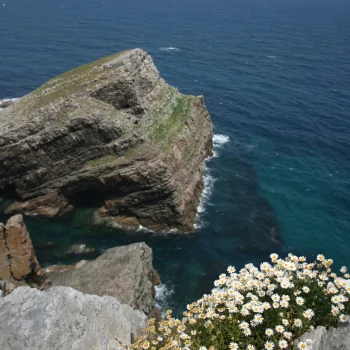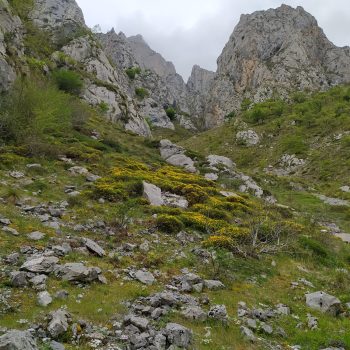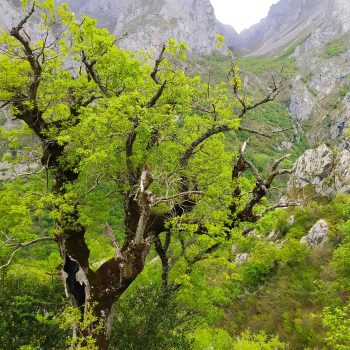Pre-Symposium Excursion
Into the Wild West: Discovering hidden protected areas of NW Iberia
From Monday, 15 June to Saturday, 20 June 2026
This activity is NOT included with registration. The total cost will be shown in December 2025.
Reservations for the pre-symposium excursion will open on 1 January 2026, alongside early registration. Seats will be available exclusively to registered participants and allocated on a first-come, first-served basis until full.
Description
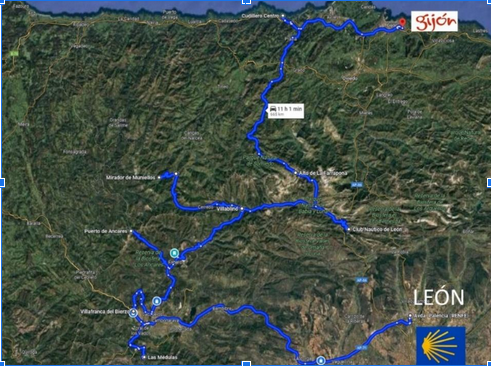 The pre-symposium botanical excursion will set off from the historic city of León on 15 June, embarking on a journey through one of the most ecologically diverse regions of the Iberian Peninsula, including part of the Camino (Santiago´s way). Over six days, participants will traverse a striking climatic and biogeographic gradient—from the dry, sunlit continental Mediterranean ecosystems of the northern Plateau to the lush, moisture-rich Atlantic landscapes of the Cantabrian coast—. This immersive itinerary offers a rare opportunity to observe the floristic transitions shaped by altitude, geology, and climate, including beech, oak and juniper woodlands, mixed forests, montane meadows, peat bogs, and coastal heathlands. Along the way, we’ll explore botanical hotspots and protected areas that harbour endemic and threatened plant species. together with relict populations of brown bears (Ursus arctos) and Western capercaillies (Tetrao urogallus)—symbols of the region’s wild heritage. In addition to fieldwork and ecological interpretation, the program includes cultural visits and gastronomical experiences featuring local cuisine and traditional mountain fare.
The pre-symposium botanical excursion will set off from the historic city of León on 15 June, embarking on a journey through one of the most ecologically diverse regions of the Iberian Peninsula, including part of the Camino (Santiago´s way). Over six days, participants will traverse a striking climatic and biogeographic gradient—from the dry, sunlit continental Mediterranean ecosystems of the northern Plateau to the lush, moisture-rich Atlantic landscapes of the Cantabrian coast—. This immersive itinerary offers a rare opportunity to observe the floristic transitions shaped by altitude, geology, and climate, including beech, oak and juniper woodlands, mixed forests, montane meadows, peat bogs, and coastal heathlands. Along the way, we’ll explore botanical hotspots and protected areas that harbour endemic and threatened plant species. together with relict populations of brown bears (Ursus arctos) and Western capercaillies (Tetrao urogallus)—symbols of the region’s wild heritage. In addition to fieldwork and ecological interpretation, the program includes cultural visits and gastronomical experiences featuring local cuisine and traditional mountain fare.
Itinerary
Day 1 (15 June)
Day 1 (15 June) – The Santiago´s way
Meeting point in León at 10:00h
- Continental Oak-olm woodlands
- Vineyard landscapes (El Bierzo)
- Las Médulas World Heritage (roman mining landscapes, El Bierzo) and the impact of forest fires
Accommodation in Villafranca del Bierzo, León
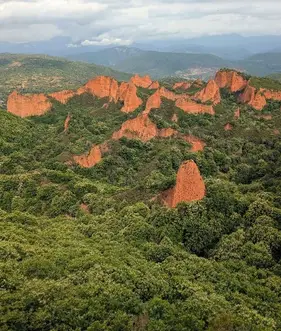
Day 2 (16 June)
Day 2 (16 June) – Acidophilous vegetation
- Mountain Heathlands (Ancares Biosphere Reserve)
- Submediterranean oak forests (Ancares Biosphere Reserve)
- Betula celtiberica and Ilex aquifolium woodlands (Omaña-Sil Biosphere Reserve)
Accommodation in Murias de Paredes, León
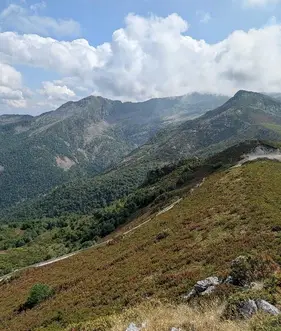
Day 3 (17 June)
Day 3 (17 June) – Atlantic forest reserves
- Introduction to Muniellos Biosphere Reserve (integral reserve)
- Muniellos forest: the largest Quercus petraea formation in W Europe
- Fagus sylvatica forests and mountain pastures (Fuentes del Narcea, Degaña and Ibias Natural Park)
Accommodation in Posada de Rengos, Asturias
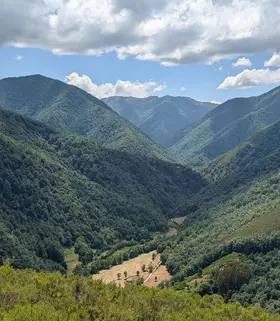
Day 4 (18 June)
Day 4 (18 June) – Calciphilous vegetation
- Subalpine landscapes in Babia Biosphere Reserve
- Juniperus woodlands in Omaña-Luna Biosphere Reserve
- Hay meadows in Babia Biosphere Reserve
Accommodation in San Emiliano, León
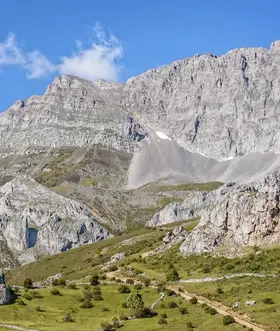
Day 5 (19 June)
Day 5 (19 June) – Unexpected landscapes
- Glacial lakes in Somiedo Biosphere Reserve
- Forest diversity and spring fens in Somiedo Biosphere Reserve
- Cantabrian mixed forests and chestnut culture in Asturias
Accommodation in Cudillero, Asturias
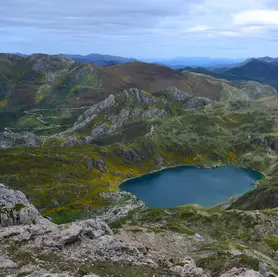
Day 6 (20 June)
Day 6 (20 June) – Protected coastal landscapes
- Fishermen villages and anthropogenic landscapes
- Coastal ecosystems
- Hyperoceanic Atlantic bogs
Arrival to Gijón/Xixón at 18:00h
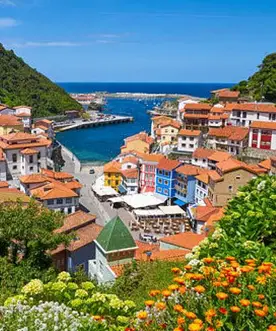
Mid-Symposium excursions
24 June (conference mid-day)
Included with registration
The organization will offer eight tours to visit major ecosystem types of NW Spain, with support of local experts to interpret dominant vegetation and flora.
Post-symposium Excursion
Surf to Summit: Picos de Europa and the eastern Asturias coast
From Saturday, 27 June to Thursday, 2 July 2026
This activity is NOT included with registration. The total cost will be shown in December 2025.
Reservations for the pre-symposium excursion will open on 1 January 2026, alongside early registration. Seats will be available exclusively to registered participants and allocated on a first-come, first-served basis until full.
Description
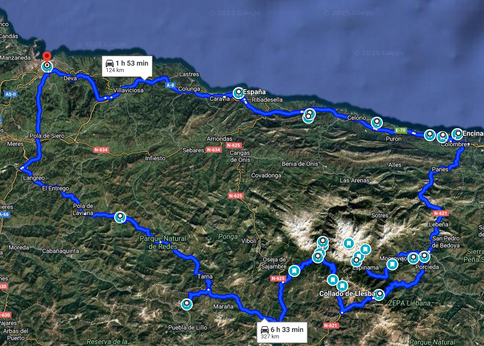 Join us for a post-symposium excursion into the heart of the Picos de Europa, Spain’s oldest National Park and a biodiversity hotspot of the Iberian Peninsula. This journey will take us across a stunning gradient of landscapes—from relict pine forests to subtropical coastal enclaves shaped by Atlantic mists. We will explore the full diversity of Iberian-Atlantic ecosystems: deciduous and evergreen forests; Atlantic heathlands and Iberian retamoid scrubs; hay meadows and alpine grasslands; raised bogs and calcareous fens; coastal cliffs, dunes and marshes. Along the way, we’ll also encounter traces of human history embedded in the landscape: traditional wolf traps, tidal mills, and centuries-old monasteries. Evenings will be spent in charming medieval towns and mountain lodges, where we’ll enjoy local cuisine.
Join us for a post-symposium excursion into the heart of the Picos de Europa, Spain’s oldest National Park and a biodiversity hotspot of the Iberian Peninsula. This journey will take us across a stunning gradient of landscapes—from relict pine forests to subtropical coastal enclaves shaped by Atlantic mists. We will explore the full diversity of Iberian-Atlantic ecosystems: deciduous and evergreen forests; Atlantic heathlands and Iberian retamoid scrubs; hay meadows and alpine grasslands; raised bogs and calcareous fens; coastal cliffs, dunes and marshes. Along the way, we’ll also encounter traces of human history embedded in the landscape: traditional wolf traps, tidal mills, and centuries-old monasteries. Evenings will be spent in charming medieval towns and mountain lodges, where we’ll enjoy local cuisine.
Itinerary
Day 1 (27 June)
Day 1 (27 June) – Mountain Forests in Redes & Mampodre-Riaño Natural Parks
Meeting point in Gijón/Xixón at 9:00h
- Acidophilous mixed forests
- Atlantic heathlands
- Relict pine forests
- Beech forests
- Bogs & fens
Accommodation in Posada de Valdeón, León
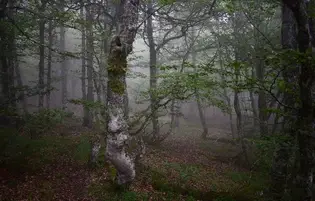
Day 2 (28 June)
Day 2 (28 June) – Valleys & Pastures in Valdeón Valley, Picos de Europa
- Basophilous mixed forests
- Afro-Iberian thermophilous forests
- Hay meadows
- Endemic willow thickets
- Retamoid scrub
- Acidophilous alpine grasslands
Accommodation in Potes, Cantabria
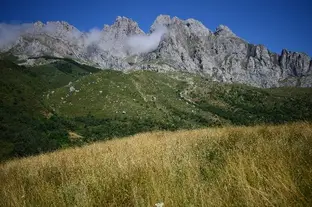
Day 3 (29 June)
Day 3 (29 June) – Mediterranean Forests in Liébana Valley, Picos de Europa
- Acidophilous holm oak forests
- Basophilous holm oak forests
- Cushion scrubs and dry grasslands
- Subalpine pastures
Accommodation in Áliva, Cantabria
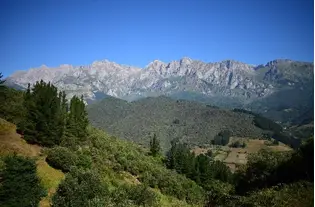
Day 4 (30 June)
Day 4 (30 June) – Alpine Summits in the Central Massif of Picos de Europa
- Calcareous alpine grasslands, full day hike with less-demanding alternative
Accommodation in Áliva, Cantabria
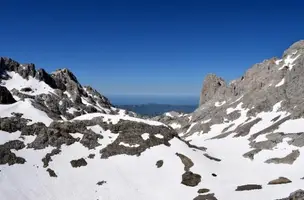
Day 5 (1 July)
Day 5 (1 July) – Vegetation of Eastern Asturias Coast
- Coastal holm oak forests
- Cliffs
- Tidal marshes
Accommodation in Llanes, Asturias
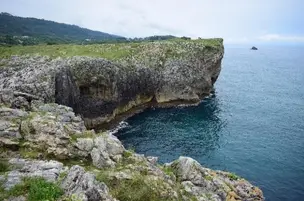
Day 6 (2 July)
Day 6 (2 July) – Subtropical Hotspots in Eastern Asturias Coast
- Riparian forests with subtropical ferns
- Beaches and dunes
Arrival to Gijón/Xixón at 18:00h
